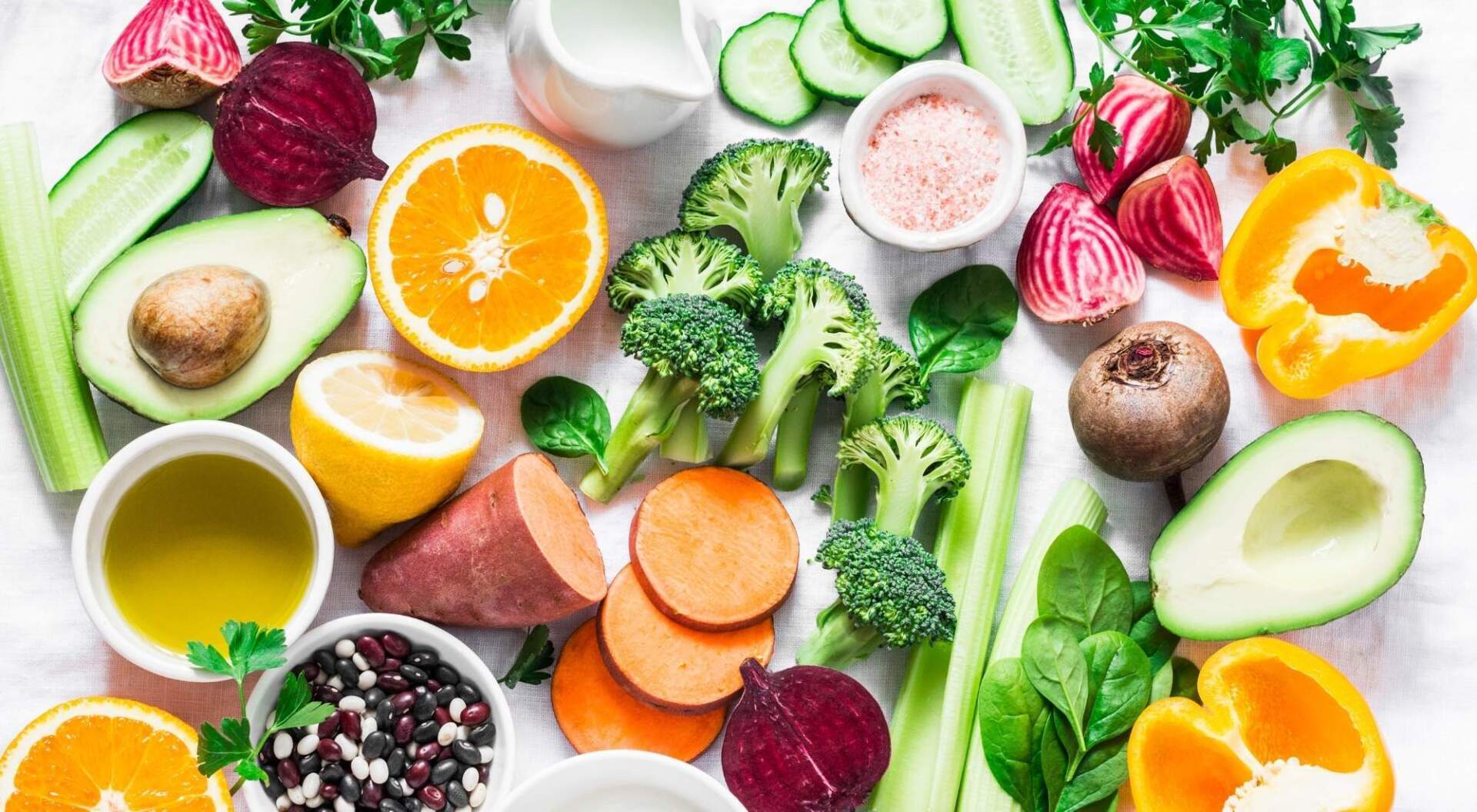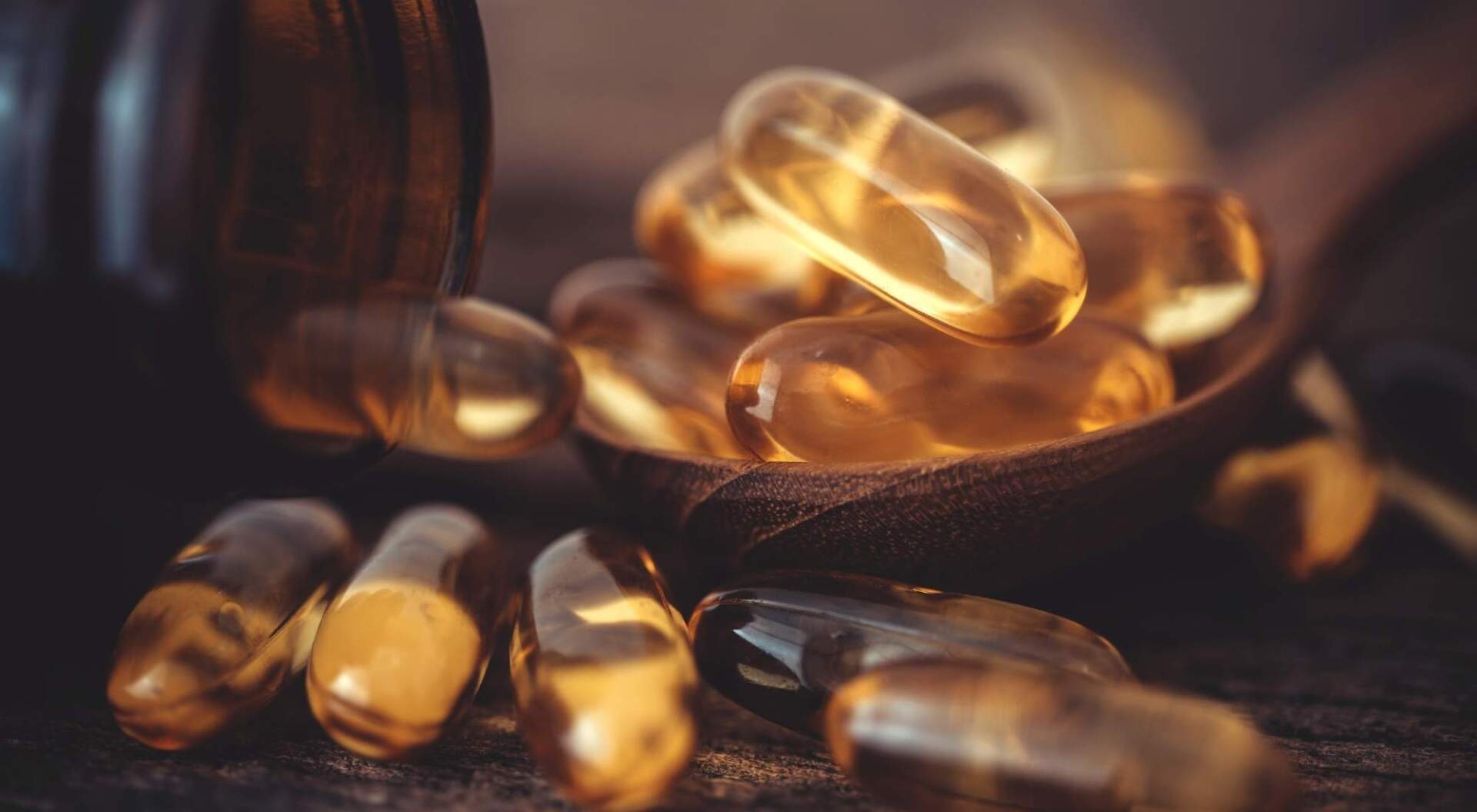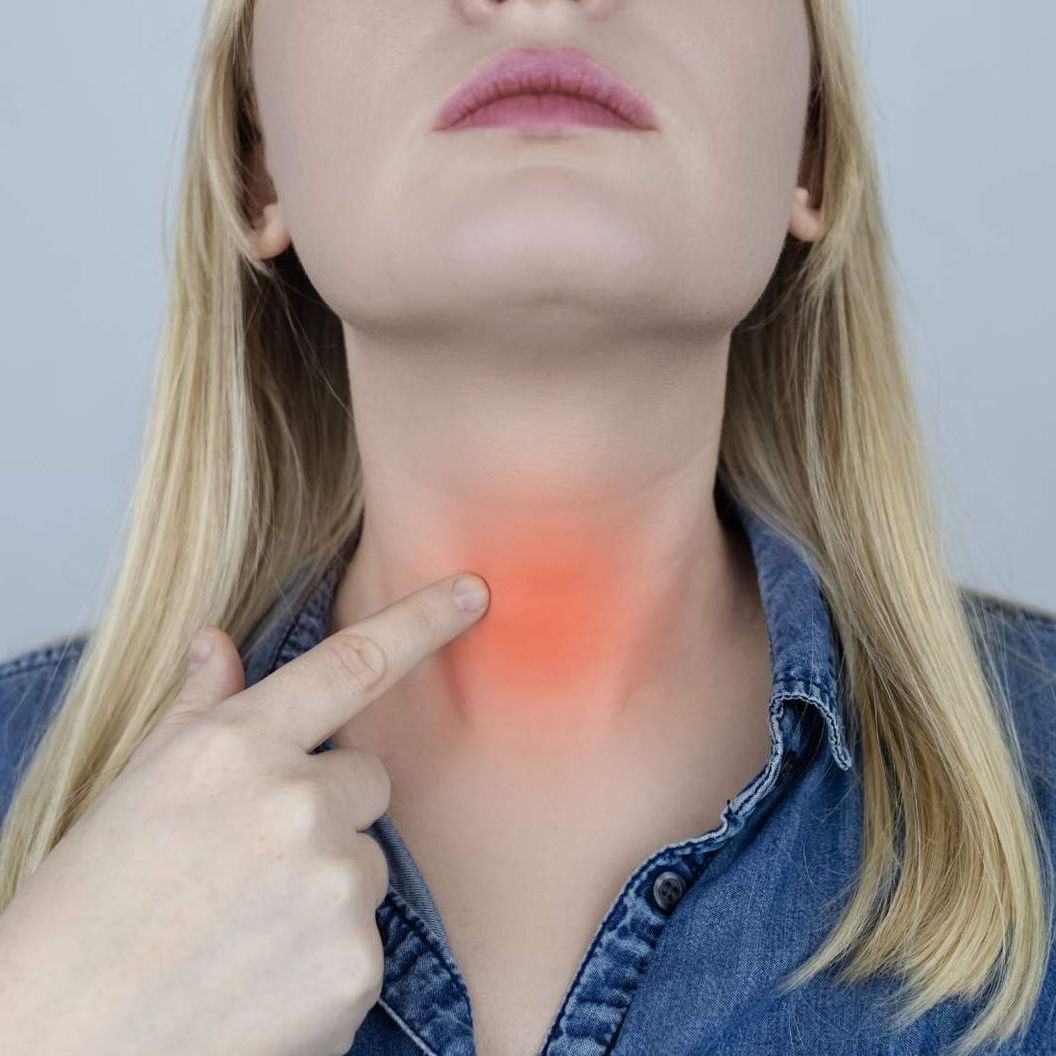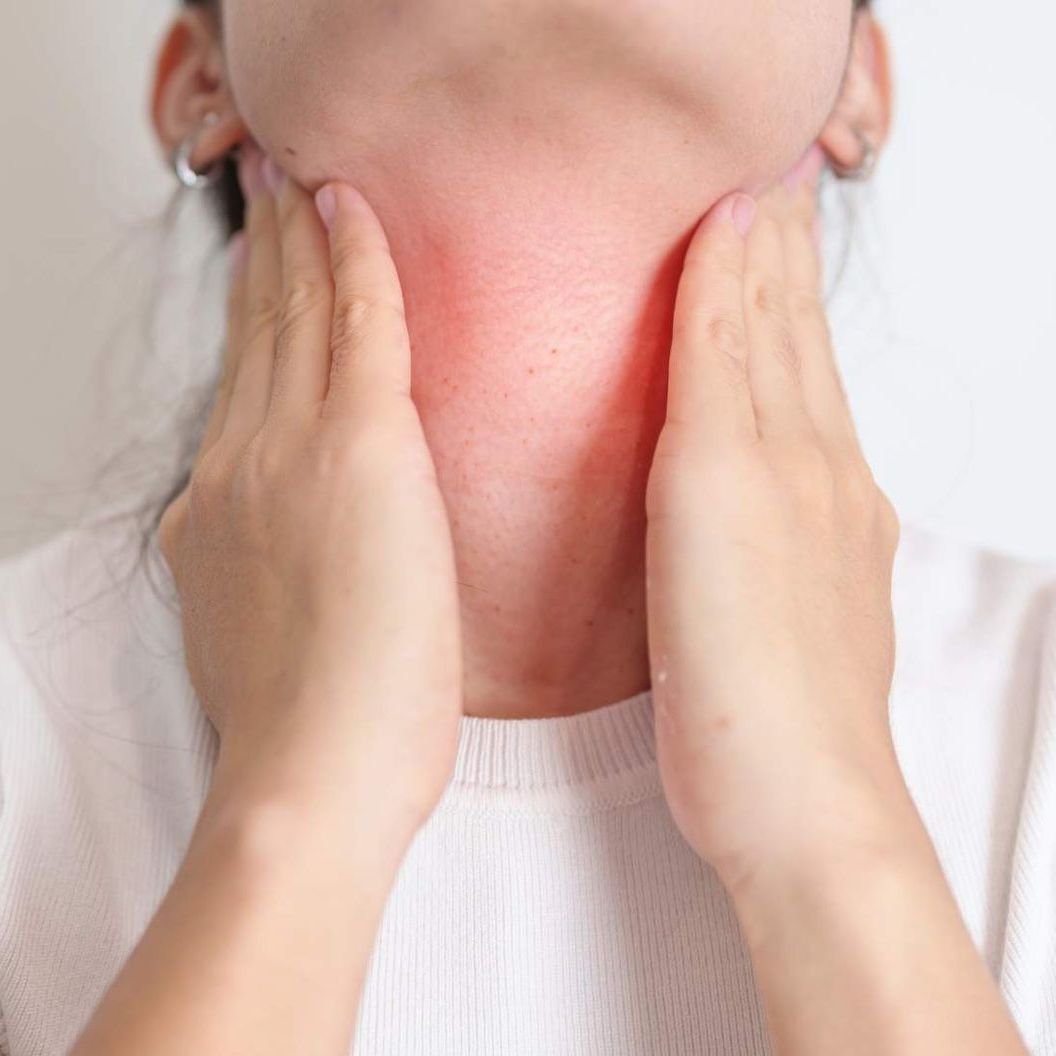Menopause Headaches: Why Do They Happen and How Can You Fight Them Off Naturally?
"The content below is not intended to be a substitute for professional medical advice, diagnosis, or treatment. Always seek the advice of your physician or other qualified health provider with any questions you may have regarding a medical condition."
You are already familiar with the symptoms of menopause. From the hot flashes to the mood swings and beyond, you know your body and how she works.
But you’ve had some crippling headaches lately.
You’ve lessened your caffeine intake, you avoid sugar like the plague, and it’s been two weeks since your last glass of wine. But the headaches persist.
You’re wondering…
Is this wicked headache another menopause symptom?
In this guide, you will learn all about:
- Menopausal headaches
- Where they come from; and
- What you can do to stop them
Table of Contents
Can Menopause Cause Headaches?
Are your painful headaches a symptom of menopause?
They may very well be.
Menopause can indeed cause headaches and they can be vicious.
Hormonal fluctuation is likely the key contributor to your pain.
When you hit menopause, your estrogen levels become erratic and you may find yourself feeling the effects of fluctuating estrogen levels.
This can cause intense migraines and hormonal headaches.
What Does a Menopause Headache Feel Like?
Menopause headaches often feel like throbbing pain that starts on one side of your head.
They are frequently accompanied by:
- Sensitivity to light and sound
- Blurry, spotted vision
- Nausea; and
- Fatigue
2 Types of Headaches Caused By Menopause
There are 2 different types of menopause headaches. Natural treatment options can be highly effective in helping with these headaches but it is important to know what type of headache you are battling.
Menopausal headaches are categorized as either migraines or hormonal headaches. They are incredibly similar but there are a couple of differences that you should know about.
HealthierU is here to
help you win the battle with proven methods that address your whole self, instead of simply throwing pills at your symptoms.
Migraines
Migraines are the more famous of the two types. Migraines include a variety of symptoms and can last anywhere from a few hours to a few days.
Migraines often include:
- Pulsating, intense pain on one side of the head
- Nausea
- Vomiting; and
- Sensitivity to sound, light, or scents
Some women also experience something called aura.
Aura is when there is a disruption in vision before the migraine occurs. Aura can happen a few minutes or hours before the migraine descends and, sometimes, aura happens without a headache.
Aura can look like:
- Dark spots
- Momentary blindness in one eye, or both
- High sensitivity to light; and
- Bright spots
Hormonal Headaches
Hormonal headaches and migraines are like evil twins. They are incredibly similar and equally miserable.
Hormonal headaches are typically accompanied by some other symptoms, which helps to differentiate the two.
Hormonal headaches might team up with:
- Acne
- Fatigue
- Constipation
- Decreased appetite; and
- Lack of coordination
How Long Do Menopause Headaches Last?
Migraines can last anywhere from 4-72 hours and occur several times a week.
Hormonal headaches tend to vary in length.
6 Menopause Headaches Natural Treatments
Now you know what a menopausal headache is, what it feels like, and what type you might be experiencing.
But you may be wondering…
How do you get rid of hormonal headaches naturally?
You’ve spent hours googling things like:
- Migraine menopause natural remedy
- Menopause migraines natural remedies
- Natural remedies for perimenopause headaches
But you still haven’t found a straight answer.
At
HealthierU, we want to provide you with what you need to feel better and these are 6 of our favorite natural remedies.
#1: Diet Changes
Dietary changes are one of the easiest remedies for menopause-induced headaches.
Changing up your diet can help alleviate many different menopause symptoms, including headaches.
Your body is fueled by the things you eat and your hormonal levels are no different.
Consuming estrogen-rich foods
and
avoiding food triggers can make a huge difference.
Keep a Food Diary — Find Food Triggers
You’ve heard about keeping food diaries since fourth-grade health class and you aren’t feeling too excited about logging every bite you take.
But, keeping a food diary is a great way to learn what foods interact well with your body and which ones are better avoided.
As you log what you eat and how it makes you feel, pretty soon, you will begin to identify foods that leave you with a crushing headache and foods that give your body what it needs without causing any pain.
Some common food triggers are:
- Caffeine
- Alcohol
- Chocolate
- Processed dairy and meat products
- Artificial sweeteners
Eat Estrogen Boosting Food
Since these headaches often come from plummeting estrogen levels, eating foods high in estrogen can be of incredible benefit.
When looking to up your natural estrogen intake, reach for foods like:
- Yams
- Pomegranates
- Decaf coffee
- Sesame seeds
- Lentils
- Organic, non-GMO soy products
- Flax seeds
- Apples
- Carrots
#2: Relaxation Techniques
Headaches are often caused by stress and are a result of our bodies reacting negatively.
While eliminating all your stressors is impossible, there are some fantastic ways to give your body the extra boost it needs to handle stress healthily.
Massage
Massages can help with more than just that knot in your back.
Massages naturally release stress and tension from your body and can even help with specific symptoms, such as menopausal headaches.
Highly effective massages focus on various pressure points in your body that target your pain points.
Now you have a great excuse to go book that massage you’ve been wanting for the past month!
Progressive Muscle Relaxation
Progressive Muscle Relaxation (PMR) is a technique that involves tensing up certain muscle groups and then relaxing them.
Some benefits of PMR include:
- Stress alleviation
- Tension release
- Muscle pain reduction
- Headache relief
Although not entirely understood, it is thought that Progressive Muscle Relaxation naturally boosts serotonin levels which combat migraines.
PMR can also alleviate...
- Neck
- Shoulder; and
- Back pain
...all of which can play a major role in the headaches you experience.
Biofeedback
Your brain is the command center of your body and it can do some incredible things.
The human brain is designed to respond to different outside stimulants by signaling certain parts of the body to trigger a response.
This is how you know to pull your hand away from something hot, press the brake pedal to avoid a crash, and grab onto something when you fall.
The same happens in response to stress.
You may begin:
- Sweating
- Tensing up; and
- Your heart rate might increase
This stress response can lead to headaches.
Biofeedback is a way of monitoring these responses through electrode monitors attached to your body. The stress responses show up on the screen in different ways, helping you know how your body is responding.
Biofeedback is a therapist-led activity and they help guide you through calming techniques to end the stress response.
As your body learns new ways of reacting, these become
tools in your toolbox
that you can use to help yourself stop a headache before it begins.
#3: Exercising Regularly
Exercise can do more than just help you lose weight and tone up.
Regular exercise is an incredible stress reliever and, as you already know,
stress is a major factor in headaches.
Yoga
Yoga not only helps build strength and flexibility, but also helps to relieve stress.
Yoga focuses on clearing external stressors from your mind and aligning your body with this new state of relaxation.
As you focus on listening to your body and noticing the way it feels during each pose, your stress will lessen.
Aerobic Activities
Aerobic activities can be great headache fighters.
Aerobics helps release various stress-related hormones such as
cortisol and adrenaline, leaving your body with a healthy dose of endorphins, known to relieve pain and improve emotional well-being.
#4: Supplements
Sometimes our bodies just need a little extra help with keeping vitamin levels where they should be.
Taking supplements is a great way to
boost these levels and encourage balance.
Magnesium
Magnesium has anti-inflammatory benefits that can help alleviate headaches.
Scientists even believe that magnesium helps to stop pain-causing chemicals and block signals that the brain uses to create headaches.
Magnesium also helps loosen tense, sore muscles.
Vitamin B-12
Studies have not yet figured out exactly how vitamin B-12 helps with headaches, only that it does.
B-12 is one of the vitamins that helps your body turn the food you feed it into fuel to power you through your day.
People with vitamin B-12 deficiencies are more likely to experience migraines.
#5: Sleep
Menopause symptoms can make getting enough sleep feel like an Olympic sport and this only adds to the frequency, and intensity, of your menopausal headaches.
Thankfully, there are some things you can do to increase your sleep, both in quantity and quality.
- Create a “sleep cave” by turning the temperature down, blocking light sources, minimizing noises, and making sure you have soft bedding and comfortable pillows.
- Turn off your screen before bed and spend some time relaxing with a book - less blue light will help your brain produce melatonin and prepare your body for sleep.
- Avoid stimulants (such as caffeine, spicy foods, and sugar) in the hours leading up to bedtime.
- Get some rays. As strange as it sounds, spending some time in the sun can help your body regulate and fend off daytime drowsiness. This will help you lessen those afternoon crash-naps and have more restful nights.
- Get enough sleep. It may sound obvious but it is important to get your 8-9 hours every night. When you are asleep, you spend about 75% of that time in restorative sleep and 25% in Deep REM energizing sleep. It takes your body about 8 hours to get through the cycles.
#6: Hydration
During menopause, it is especially important to keep well hydrated as you can more easily become dehydrated.
Those night sweats you experience? Your body loses water in large quantities when these occur.
Drinking enough water can:
- Improve focus
- Lessen cramps
- Alleviate headaches
- Boost energy; and
- Flush toxins from your body
Learn how HealthierU Can Help You Find Menopause Headaches Natural Remedies and Prevent Them From Occurring in the Future
All of these tools are great and implementing them may help alleviate your menopause headaches.
But you have more options.
At HealthierU we are committed to helping you thrive in your transitional season.
If you are looking to make this your best season of life yet, you should consider nutrition response testing.
We can help you understand what is best for your body and your needs by creating a comprehensive lifestyle plan that once again places you in control of your health.
Not only do we want to help you understand
how to get rid of hormonal headaches naturally, but we also want to help you find
permanent solutions for your symptoms.






